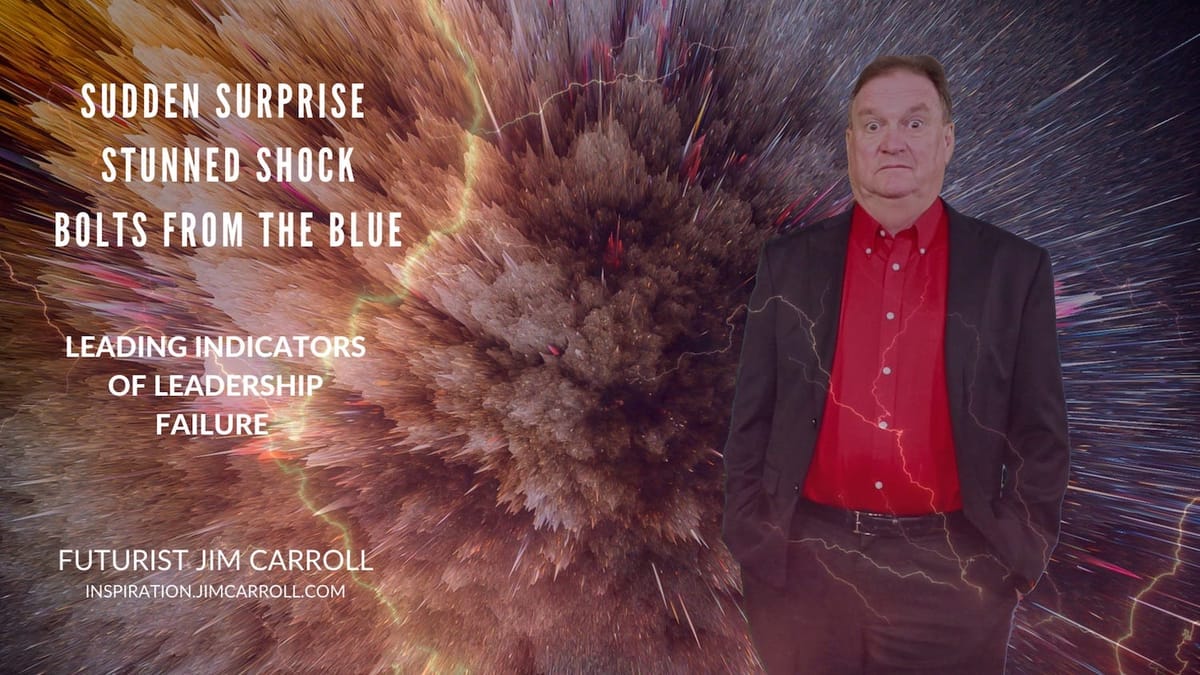Stop saying, ‘whoah, I didn’t see that coming,’ because many of us told you about it long ago!
You'd have to be living in a cave to not be aware of the challenges facing your organization - new competitors, faster product innovation, changing business models, more demanding and less loyal consumers, supply chain and resilience issues, price and input challenges. Not only that but the drumbeat of insight that 'volatility is the new normal' and that leadership agility is critical has been pounding away for a while.
So how can anyone possibly be surprised by any type of surprise?
And yet I observe people always saying such things as "wow, I didn't see that coming." "If we only knew!" "Who could have predicted that!" "What a surprise!" "We never had the slightest idea!" I did, and so did many of my counterparts who spend our time studying trends, thinking about tomorrow, conducting our research, and analyzing our analysis. If you are continually surprised by what comes next, you are missing opportunities by way of negligence! Are you thinking about tomorrow? Are you actually doing something about it? Or does surprise rule your agenda and define your future?
Here's an interesting twist - maybe you should actually 'structure for surprise' given the reality and challenges of our post-pandemic world because we now know that anything is possible. And yet, all around me, I see people preparing for where they are going to be 3 to 6 months from now. They are making assumptions, presuming certainty, and deciding realities based on a pathway that has us returning to 'normal' - whatever that might be. Things might not work out as they expect.
The future has become a funny thing - we can have more clarity on our long-term future, driven by the inviolability of certain trends - but we can do a miserable job in figuring out where we might be in the short term. That's because uncertainty, driven by the twists and turns of ambiguous clarity, is now the only certainty we can count on post-pandemic. Let me repeat that - uncertainty is the new certainty.
Predicting what comes next in the short term has become a fool's errand. I can certainly tell you where will be in 2025 or 2030 and the world we will find ourselves in - but 3 to 6 months? That's a stretch because any sort of short, sharp shock in our world of volatility might throw those trends into the dust pile. Long-term? We know that 10 years out, much of the automotive world will be based on electric vehicle technology and batteries; healthcare will be driven by connected medical devices; a lot of infrastructures will be intelligent, and oil and carbon will be even more of a sunset industry than it is today. These trends are clear and certain.
But short-term? Nothing is certain. Everything is unknown. Have you not been listening to the phrase I've been repeating ad nauseam since this crisis began - "volatility is the new normal."
Be careful what you wish for - because, it might not happen!

